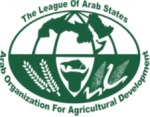by Kibrom Abay
Disruptions in Sudan’s wheat value chain and associated shortages of wheat bread or related price spikes are usually contentious issues.[1] For example, recent attempts to remove subsidies resulted in higher bread and fuel prices. Moreover, the outbreak of the COVID-19 pandemic in 2020 and various mobility restrictions have added stress to an already ailing economy and the poorly performing wheat market by disrupting production, trade and transport in many sectors.

As part of its broader engagement in Sudan, IFPRI is currently conducting a suite of studies, elaborated here, on wheat value chains in Sudan. There are four major components to this project which aims to identify: short and long-term inefficiencies affecting the wheat value chain. IFPRI particularly aims to conduct the following analyses: (1) Rapid Assessment of Wheat Value Chain; (2) Price Distortions and Wheat Market Competitiveness; (3) Analysis of Wheat Trade; and (4) Political Economy Analysis of Wheat Value Chain. These four components are integrated to provide a holistic understanding of the landscape around wheat value-chains and pathways to greater wheat market efficiency in Sudan.
The rapid assessment of wheat value chains aims to identify major bottlenecks. The value chain for imported wheat in Sudan involves four major actors: importers and milling companies; wheat flour agents; bakeries and other processing companies; and consumers. The value chain for locally produced wheat also involves four main actors: wheat producers, wheat grain wholesalers, wheat grain retailers and consumers. IFPRI is currently running multiple surveys with a sample of respondents from each actor of the two wheat value chains. The questionnaires are designed to address important research questions related to the functioning of wheat markets as well as important bottlenecks and challenges facing each actor of the wheat value chain.
The second component of the project aims to identify important market and price distortions at key steps in the value chain (production, milling, consumption and external trade) while also assessing market integration of wheat and sorghum markets with Sudan.
The third component of this project will analyze wheat trade using secondary data on production and consumption patterns in Sudan, including on the implications of additional wheat imports on market prices and on welfare of producers and consumers. This component will also analyze various other policies, including the implications of investments in domestic production, changes in consumer subsidies and world price shocks on wheat production, consumption, trade and the cost of wheat subsidies.[2]
Finally, the fourth component of this project will involve a political economy assessment that draws on the Political Settlements framework[3], which focuses on the balance of power between contending social groups and classes. Such a framework would involve identifying, both, coalitions among elites (e.g., political parties, military, and business) as well as between elites and different societal interest groups (e.g., producers, millers, wholesalers, and urban consumers) that underpin Sudan’s extant wheat value chains. This analysis, among others, will uncover the preferences of stakeholders along the wheat value chain, which can help to identify potential champions for greater efficiency within the value chain.
IFPRI is cognizant of the strategic importance of wheat and hence the relevance this set of targeted analyses has in Sudan. Hence, IFPRI will be sharing its findings with the diverse range of stakeholders relevant to the wheat sector. The official launch of IFPRI’s Sudan Strategy Support Program will soon take place, as well as the findings associated with this specific study in a seminar in Khartoum.
[1] Sudan satisfies about 80-85 percent of total demand of wheat through imports while the remaining 15-20 percent is covered by domestic production.
[2] Subsidies and transfers accounted for 63.4 and 9.2 percent of the federal government expenditures in 2019. Fuel subsidies alone accounted for 56.6 percent of government expenditures (IMF, 2020). https://www.imf.org/en/Publications/CR/Issues/2020/03/10/Sudan-2019-Article-IV-Consultation-Press-Release-Staff-Report-and-Statement-by-the-Executive-49254
[3] Khan, Mustaq. (2000). “Rent-Seeking as a Process: Inputs, Rent-Outcomes and Net Effects.” In M. Khan and K.S.
Jomo, (eds.), Rents, Rent-Seeking and Economic Development. Cambridge: Cambridge University Press.
Kibrom Abay is the Egypt Program Leader and Research Fellow at IFPRI
